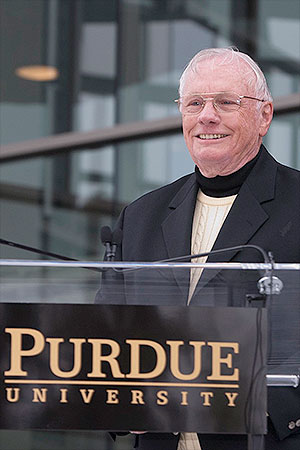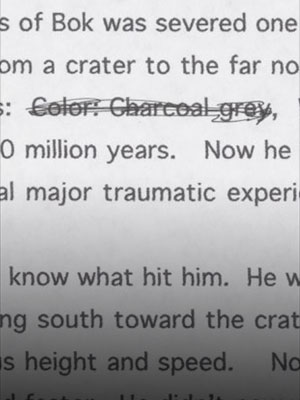October 2, 2024 — Apollo 11 astronaut Neil Armstrong is perhaps best known for saying 11 words on July 20, 1969 (12, if you count the "a"): "That's one small step for (a) man, one giant leap for mankind." But there is much, much more to his oral record, as his alma mater can now confirm — and everyone can access.
The Archives and Special Collections (ASC) division of Purdue University Libraries in West Lafayette, Indiana, has completed scanning the transcripts used by the first moonwalker for his public addresses and some of his speeches. The 7,700 pages, which were donated in 2011 by Armstrong's wife Carol, can now be freely accessed using the school's online archives platform.
"It's wonderful to celebrate the speeches' public availability," Jo Otremba, archivist for flight and space exploration and clinical assistant professor at Purdue Libraries and School of Information Studies, said in a statement. "This project highlights the continuous effort required to make these resources accessible."
Although Armstrong often preferred to defer to others who made the Apollo moon landings and U.S. space program possible, he delivered many remarks throughout his years as a NASA astronaut, aerospace engineering professor, board member and private advocate for space exploration. He gave testimony before Congress, commemorated past spaceflights on their anniversaries and spoke to students at Purdue, where he had earned a Bachelor of Science in aeronautical engineering in 1955 and an honorary doctorate in 1970.
Many of the talks that have now been digitized include Armstrong's handwritten annotations, including comments or arrows in the margins, suggesting changes that he wanted to make to the word or phrase order. For example, in his 2006 acceptance speech for NASA's Ambassador of Exploration Award, Armstrong decided at some point not to describe the hue of a moon rock he named "Bok."
"Boks [sic] statistics: Color: Charcoal grey. Weight: 2.24 kilograms. Age: 600 million years," read the original typewritten speech. Armstrong scratched out "Color: Charcoal grey" in pen and omitted that part when delivering the tale of Bok.
Other notes were his quips, such as those that he jotted down for one of his return visits to Purdue.
"There's a peculiar sensation when watching the Earth sink away from you and get small," he wrote on one sheet that began, "Great to be back at Purdue. Forgive an intruder from aero school."
Otremba said that Armstrong frequently added information that can now provide the public with additional context for the speech.
"He often added notes on the speeches sharing the date and location the speech was given, which is an interesting feature," Otremba said.
The speeches are part of a larger collection of papers and items that Armstrong began donating to Purdue four years prior to his death in 2012. Those holdings became the basis for the Barron Hilton Flight and Space Exploration Archives, which now include the records of other engineers, aviation professionals, scholars and more astronauts, including Purdue alumni Gene Cernan, who commanded the last Apollo mission to the moon, and record-setting spacewalker Jerry Ross.
Armstrong's personal archive, though, continues to be one of the most accessed collections for research requests and instructional usage, according to the university. The complete physical collection, which is available for research at the Virginia Kelly Karnes Archives and Special Collections Research Center on the Purdue West Lafayette campus, totals more than 70,000 documents, filling more than 450 boxes.
Increasing the ease of access to the collection by bringing it online has been the university's goal since the acquisition of the speeches. The work to scan the transcripts was funded by the Purdue Research Foundation and Carol Armstrong beginning in 2022. The process itself is lengthy and requires that each speech be described, vetted for third-party copyright and then uploaded to e-Archives. |
|

Apollo 11 moonwalker Neil Armstrong delivers remarks at his alma mater, Purdue University, in West Lafayette, Indiana in 2007. The notes for that speech and many others have now been digitized by the school's Archives and Special Collections. (Purdue University)

At some point before accepting NASA's Amassador of Exploration Award in 2006, Apollo 11 astronaut Neil Armstrong decided to omit mention of the color the honor's moon rock. (Purdue University) |
